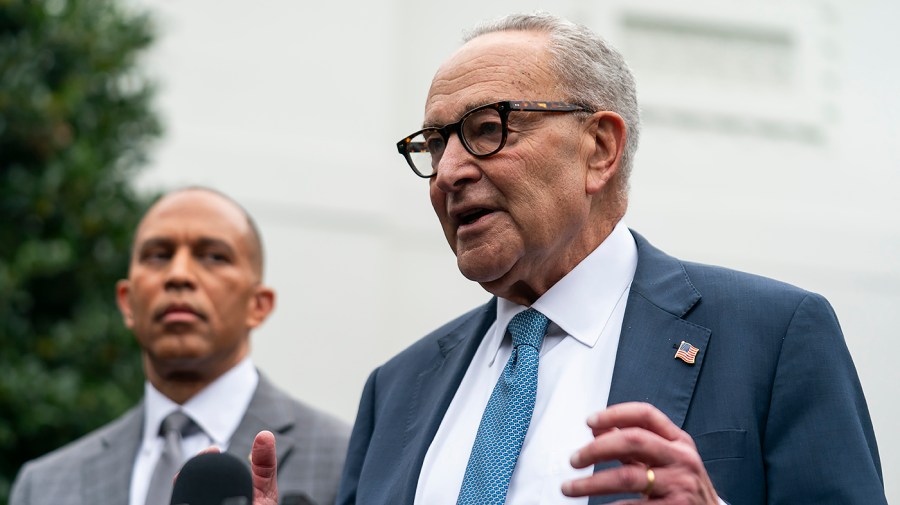Senate Democratic Leader Chuck Schumer indicated a growing divide between President Donald Trump and Republican leaders regarding health insurance subsidies during discussions about a short-term government funding bill. This bill is crucial to prevent significant increases in health insurance premiums next year as enhanced subsidies are set to expire on December 31, 2023.
Schumer met with Trump, Senate Majority Leader John Thune, House Speaker Mike Johnson, and House Minority Leader Hakeem Jeffries at the White House on Monday afternoon. The meeting aimed to address the impending funding deadline, which is set for 23:59 on September 30, 2023.
During the discussions, Schumer expressed that Democrats are advocating for an extension of the enhanced health insurance subsidies and other healthcare provisions, which they believe are essential for maintaining affordable coverage for millions of Americans. He noted that the GOP leaders appeared hesitant to address the healthcare issue immediately, opting instead to postpone discussions.
The Democratic leader stated, “When we made these arguments, it was clear there was a division or possible division between the president and the two Republican leaders.” He emphasized that Trump demonstrated a greater awareness of the challenges ordinary Americans face, particularly those who may lose their health coverage due to rising premiums.
Schumer recounted a specific encounter with a constituent, a woman distressed over her daughter’s cancer treatment and potential loss of healthcare. He mentioned that this personal story resonated with Trump, who seemed unaware of the immediate implications of the Affordable Care Act (ACA) subsidy expiration. “He was not aware that tens of millions of Americans would pay huge increases in their health care bills because of the ACA expiring in December,” Schumer said.
Both Thune and Johnson have expressed their intent to tackle the issue of expiring health care premium tax credits later this year, but they oppose linking this matter to the urgent funding legislation. Schumer and Jeffries highlighted the critical nature of the ACA subsidies, which are set to end soon, and raised concerns about “pocket rescissions” and impoundments that they view as attempts to undermine congressional spending authority.
In urging Trump to intervene with Republican leaders, Schumer suggested that the president could help resolve the healthcare issue by insisting on the inclusion of ACA subsidy extensions in the funding bill. He stressed, “It’s in the president’s hands whether to avoid a shutdown or not. He has to convince the Republican leaders.”
The outcome of these discussions will play a significant role in shaping the government’s funding strategy and determining the future of health insurance subsidies for many Americans. As the deadline approaches, the pressure mounts on all parties involved to find a solution that addresses both funding needs and healthcare concerns.








































































